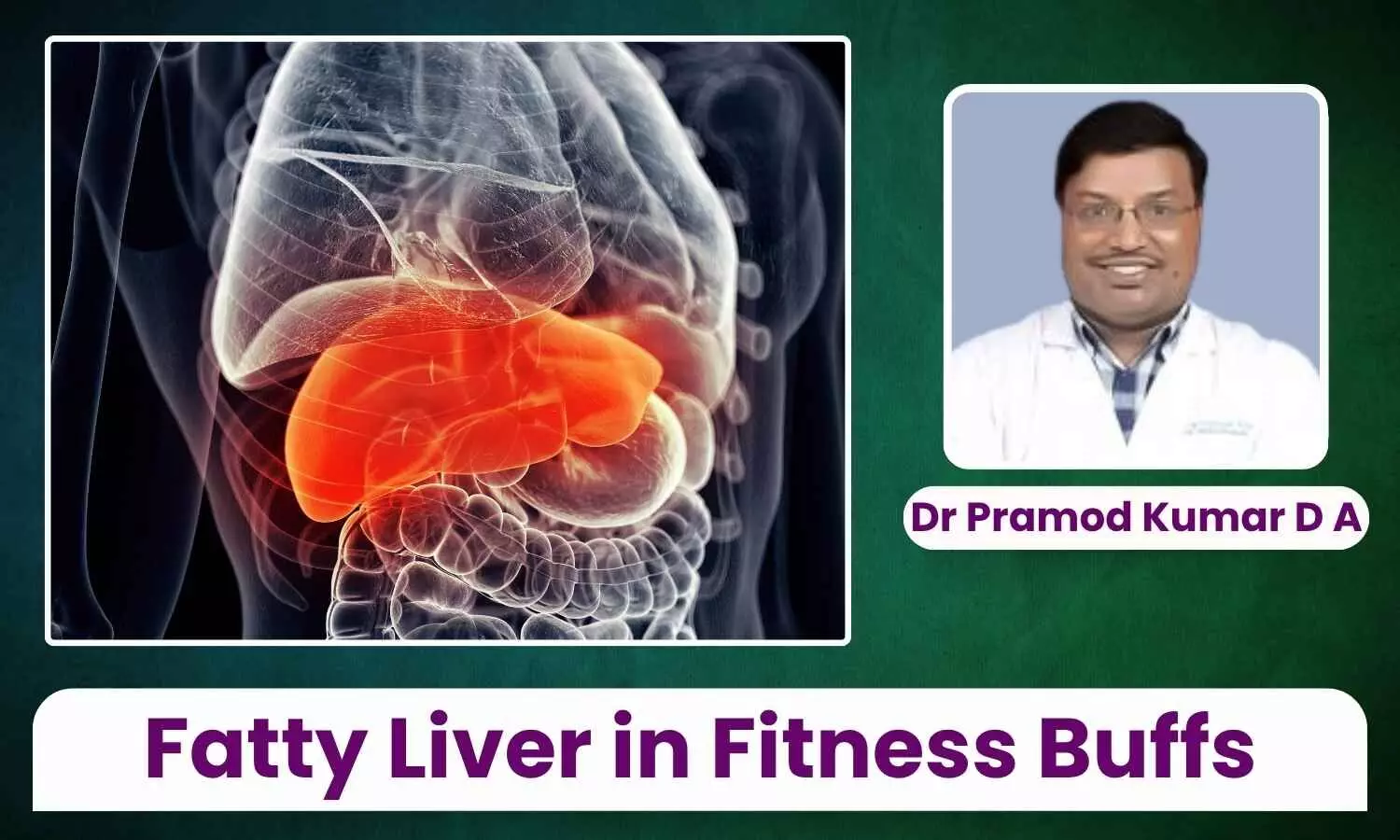Fatty Liver in Fitness Buffs: Why Clean Eating Isn't Always Clean for Liver - Dr Pramod Kumar D A

You’d expect a liver problem in someone who drinks a lot, eats badly, barely moves. But what we’re seeing now is the opposite. People who live at the gym, watch what they eat, don’t touch alcohol, they’re showing up with fatty liver. Yes, it’s confusing. But it’s real.
In my clinic, I’ve seen more than a few patients, slim, muscular, active, walk in with elevated liver enzymes or fatty changes on scans. Most of them are shocked. “But I eat healthy,” they say. “I don’t even drink.” What’s going on?
When Fit Doesn't Mean Fine
There’s this assumption that if you’re not overweight, you can’t have fatty liver. That’s not true. You can look fit on the outside and still have fat building up inside the liver.
We call this lean MAFLD (Metabolic Dysfunction-Associated Steatotic Liver Disease). It doesn’t come from alcohol, and it doesn’t always come from obesity either. Sometimes, it’s the lifestyle habits we think are healthy that are quietly causing damage.
Diet Trends and Their Downsides
Let’s talk diets. Keto, low-carb, high-protein, intermittent fasting, they’re everywhere. These can work for fat loss or better energy, but they’re not always liver-friendly.
When someone loads up on animal fats and protein powders while cutting out carbs completely, it can strain the liver. Over time, this can lead to fat getting stuck in liver cells.
Also, many gym-goers rely on “health foods” that aren’t always as clean as they seem. Protein bars, flavoured supplements, sugar-free drinks—they’re packed with ingredients that are hard to pronounce, and harder for your liver to break down.
The Supplement Situation
Supplements are a big part of the fitness world. Some people take three or four different ones a day, protein, creatine, BCAAs, fat burners, detox teas. The problem is, most of these aren’t regulated well. They may have hidden compounds that can quietly irritate the liver over time.
Even common ones like multivitamins or iron can be harmful in excess. If your liver is already stressed, adding more to its workload won’t help.
The Fasting Factor
Now, fasting is another trend that can go either way. If it’s done right, it can support metabolism. But when it’s mixed with dehydration, poor eating during feeding windows, or excessive workouts, it backfires.
The liver needs water to process fats and toxins. Skipping water while pushing your body can reduce bile flow and slow down liver function. Also, breaking a long fast with a heavy, greasy meal? Not a great idea for your liver. It creates a sudden load, and if that happens often, it adds up.
The Silent Progression
That’s the tricky part. Fatty liver doesn’t hurt. You won’t feel it. No obvious symptoms, no warning bells. It just quietly progresses until it becomes serious. The only clues may come from a routine scan or a blood test that shows your liver enzymes creeping up.
Most young people don’t think to check their liver. And why would they? They’re eating “right,” staying active, doing all the things the world says is good for you. That’s what makes this such a hidden issue.
What You Can Do
If you’re someone who works out often, tracks your macros, and follows any kind of restrictive diet—pause and check in. Not just with your coach, but with your doctor too.
Here’s what I tell my patients:
Use supplements only when needed. More isn’t always better.
Don’t fear carbs. Whole grains, fruits, and vegetables help your liver too.
Stay hydrated, especially when fasting or training.
Don’t skip routine blood tests. LFTs (liver function tests) are quick and give a good idea of what’s going on inside.
Listen to your body. Fatigue, bloating, or poor recovery could mean more than just overtraining. Being fit isn’t just about what you see in the mirror. It’s about how your body works inside.
The liver isn’t flashy, but it’s vital, it handles everything from digestion to detox. And it doesn’t complain until it’s in real trouble.
So, while you’re tracking calories and protein, track your health too. Not just muscle mass, but liver mass, liver stress, liver signals. It might be the one organ you’re overlooking in your pursuit of wellness.


